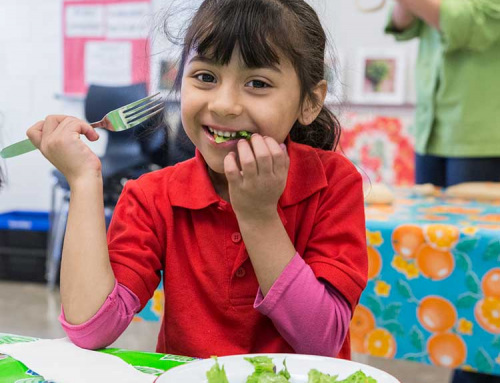 Cooking for picky family members can be frustrating as well as expensive. Having to cook different meals for every single family member just adds unneeded stress and takes valuable time from our already hectic lives. Many parents are so tired that they just give into their children (or partner’s) demands and therefore allow the problem of picky eating to become worse.
Cooking for picky family members can be frustrating as well as expensive. Having to cook different meals for every single family member just adds unneeded stress and takes valuable time from our already hectic lives. Many parents are so tired that they just give into their children (or partner’s) demands and therefore allow the problem of picky eating to become worse.
So what are some easy, “real life” tips that can help create happy, healthy mealtimes and minimize conflicts at the kitchen table? The most important thing that you can do is be a good example. How can you expect your children or significant other to not be picky when you refuse to eat certain things or express disgust at certain foods? Even if there is a food that you dislike, encourage your family to try this for themselves – it may even become their favorite new food!
Mealtimes should also be family time. With all the craziness going on in our lives, try to make at least one meal per day a time to connect with each other and find out how everyone’s day is going. Turn off the television, leave your smart phones in another room and just focus on communication and being present for your family members. With better communication, kids may feel more empowered to try new foods!
Another great way to spend time together is to have kids and your partner help with the grocery shopping as well as the cooking process. Have your kids pick a new fruit or vegetable to try, that way they feel like they have some control over what they are putting into their bodies. You can also have your family help with age appropriate meal preparations such as washing and cutting the produce, setting the table, pouring drinks and serving the food. Instead of worrying about the potential mess kids and partners can make, focus on spending precious time with your family! By giving kids responsibilities surrounding the food preparation and presentation process, kids will become more invested in mealtimes, develop responsibility and self-reliance skills.
Children, especially from the age of 6 months to 5 years, are developing their motor skills and have changing taste buds. Research shows that “playing” with food is how kids become familiar with new tastes and textures. A child’s experiences with food during these ages can determine if they develop healthy habits or become picky eaters. It is important to make meal times pleasant and non-punitive. Don’t force children to finish all the food on their plates. Begin by offering kids small portions, and wait for them to ask for more if they are still hungry. As the parent, it is your job to offer healthy foods to your family and they can choose if and how much to eat. When offering new foods, begin by introducing small amounts. You can also try serving the new food with something you know your child or partner already likes so that they will have a more positive association with this food. Also, don’t cook special meals for family members because they refuse to eat the food you prepare for them. Children (and partners) may throw tantrums when they don’t get what they want, but stand firm! If a child gets hungry enough, they will eat the food presented to them so just make sure that you are offering healthy options.
Another important thing to remember is not to give up! Research shows that it takes someone 10 to 15 exposures to a new food before they begin to develop a taste for it. Food psychologists say that anyone, young or old, can learn to enjoy new foods or foods they previously didn’t like. Many parents make the mistake of labeling their kids as “picky eaters” when, really, they just need to be exposed more often to differing flavors and textures. By offering your family a consistent healthy meal and refusing to cook special meals for every family member based on their likes and dislikes, you are setting yourself up for less stress in the future. Changing eating habits can be hard, but it is totally doable. Just keep offering your family healthy food in a loving, supportive environment.
The Team Inyo for Healthy Kids coalition was established in April 2010 to work with families and communities in Inyo County to prevent and reduce childhood obesity by promoting healthy eating and active living.
Follow Team Inyo on Facebook to learn more about ongoing activities by Team Inyo agencies. You can also get involved! For more information, contact us through our Facebook page or email at info@teaminyo.com.







